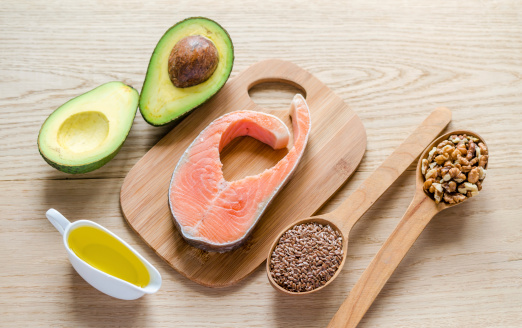Famished? 5 Mistakes That Leave You Constantly Hungry
Article posted in: Diet & Nutrition
When you are trying to lose weight, you might be expecting to be constantly hungry. But the Nutrisystem program is designed to keep your appetite satisfied with meals and snacks that fill you up for hours after you eat. If you can never quite shake that hungry feeling even when it hasn’t been long since you ate, it could be because of factors that are not related to how much food you’ve had.
Here are five common—but often unrecognized—reasons you are constantly hungry… and how to deal:
1. You’re Thirsty
When you’re hungry and need to eat, you feel sluggish and have trouble concentrating. Mild dehydration has very similar symptoms. What’s more, the gland that regulates your appetite, your hypothalamus, also signals your body that’s in need of fluids. A study in the journal Physiology & Behavior found that people misinterpret thirst as hunger more than 60 percent of the time.
Your solution: Drink at least 64 ounces of fluids each day to help you stay hydrated and prevent you from feeling hungry between meals.
2. The Wrong Carbs
Carbohydrates are a critical component of your healthy diet, a valuable source of slow-burning fuel. But eating simple carbs, such as white flour and sugar, causes your blood’s glucose levels to spike and then crash. That triggers the release of hormones that lead you to feel hungry again not long after you’ve had a meal.
Your solution: Pass on refined grains and other simple carbohydrates and instead go for SmartCarbs, which are high in fiber, so they’re digested slowly and keep you feeling full. Fresh fruit and whole grains are SmartCarbs that ward off hunger. Or, check out our top 10 Pasta Dishes, sure to satisfy your carb craving without the guilt!
3. Not Enough Fat
Even when you’re trying to shed excess pounds, your body needs fats. They provide long-lasting energy and help your body absorb the other nutrients in your food. Just as important, fats satisfy your appetite for hours after you’ve eaten. A study in the medical journal Obesity found that people on a low-fat diet were much more frequently hungry than those on other weight loss regimens. Even worse, many packaged foods labeled as “low-fat” are high in sugar to compensate for the reduced fats, further stimulating your appetite.
Your solution: Choose healthy fats, which provide all of the benefits, but don’t load you down with extra calories. Nuts, avocados and olives are among the most nutritious sources of healthy fats.
4. Lack of Sleep
While you rest at night, your body is managing its critical supply of appetite hormones along with your metabolism and blood sugar levels. If you don’t sleep enough, your body needs more food for energy to sustain it through your daily activities. Also, when you lack sleep, your body produces less leptin, the compound that tells your brain when your stomach is full, according to a report published by the National Institutes of Health.
Your solution: Sleep needs vary among adults, but most experts agree that we all need at least seven solid hours of shut-eye each night and that eight is ideal. If you have trouble falling or staying asleep, avoid eating or vigorous exercise for at least two hours before bedtime.
5. Too Stressed
Anxiety and tension are healthy, normal responses to uncomfortable situations that happen in our daily lives. But when those feelings persist, your body releases ghrelin, which stimulates your appetite and leads to cravings for foods high in sugar, fat, or both, say scientists in the journal Obesity Reviews.
Your solution: A short walk, stretching or other light physical activity relieves stress and reduces the gherlin in your system, so your mind is clear and you can focus on solving the problem causing the stress instead of eating.










